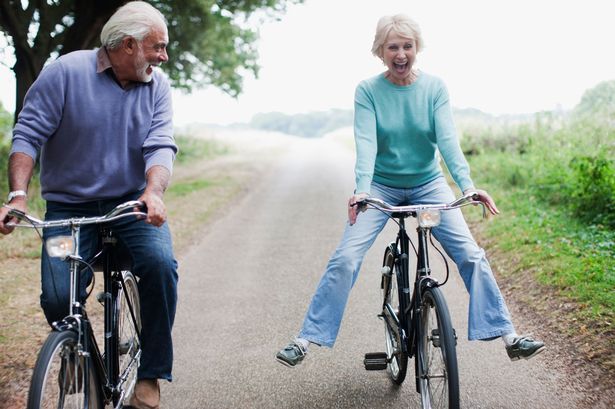Let’s get real; for some people in their 60s, having a fun holiday weekend may involve long bike rides along scenic paths in Coconut Grove, while others make it memorable by watching The Office marathons sitting on a recliner.
However, no matter how active you were in the years pre-retirement, chances are you will need to adjust your routine to address the reality of your aging body.
Dr. Erik Rebbe earned his Doctor of Physical Therapy Degree (DPT) from the University of Miami in 2016 where he graduated with honors. Since graduating, Dr. Rebbe has continued to obtain various certifications to further develop his knowledge of the latest techniques and broaden his expertise to address various medical conditions so that he can help his patients embrace a better quality of life. Many of Dr. Rebbe’s geriatric patients require physical therapy for the treatment of functional problems related to pain, poor endurance, balance issues, difficulty walking, and/or muscle weakness. This decline in general health associated with the aging process can make daily tasks more challenging for seniors and increase their risk of serious injury.
Studies show that one in four Americans who are currently 65 years of age will live to be at least 90. Although aging has its negative impacts on health over time, physical therapy allows seniors to maintain and improve their quality of life. Dr. Rebbe’s mission is to partner with his patients to maintain or restore maximum function and keep seniors on track for meaningful, independent living.
Throughout the aging process, risk for certain diseases and illnesses increase. Medical professionals are finding that physical therapy can be used to help seniors manage these various chronic illnesses and diseases, including but not limited to:
- Arthritis: Most people 65 and older have some form of arthritis in their spine or extremities and may not present any initial symptoms or pain. Dr. Rebbe utilizes both manual and therapeutic exercise techniques to alleviate current discomfort or prevent future pain that can occur as a result of arthritis.
- Stroke: Seniors who have suffered from a stroke will typically experience loss of muscle strength, coordination, instability, and possible stiffness on one side of their body. Dr. Rebbe utilizes many different treatment techniques including but not limited to; LSVT, balance training, and constraint-induced movement therapy method, manual therapy techniques, and neuromuscular re-education to restore function and independence to the greatest extent possible.
- Incontinence: Working with seniors to identify specific muscles and how to use them correctly, Dr. Rebbe can assign pelvic floor exercises that increase strength in the muscles controlling the bladder.
- Parkinson’s Disease (PD): Approximately 1.5 million Americans have Parkinson’s Disease and around 60,000 new cases are being diagnosed each year, with the condition most often affecting those 65 years or older. Although this disease in seniors remains irreversible and progressive, medication and physical therapy can help improve symptoms including: bradykinesia (slow movement), initiation of movement, gait (festination), balance, rigidity, and impaired trunk mobility. Dr. Rebbe is a certified LSVT BIG clinicial who can tailor a treatment program to minimize the symptoms mentioned above.
- Alzheimer’s Disease: Dr. Rebbe works with seniors diagnosed with Alzheimer’s or other forms of dementia to create exercise routines that can help improve memory function and delay the onset of more serious memory impairments.
Isn’t it time for you to find out how Dr. Rebbe can support you in leading your best possible life as a senior? Make an appointment today; many health insurance plans cover physical therapy and you can start on your path to a better quality of life!

